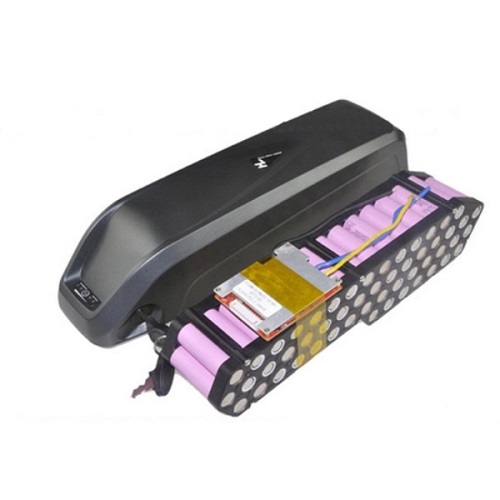One of the key components of an e-bike is the e-bike battery, as it determines the range, power, and overall performance. Choosing the right battery for your bike is essential to ensure optimal performance and a satisfying riding experience.
This article will explore various aspects of e-bike battery technology, factors to consider when selecting a battery, battery management systems, battery life, and maintenance tips.

Part 1. Types of e-bike batteries
Lithium-ion batteries
Many experts generally agree that lithium-ion batteries are the most popular choice for e-bikes because of their high energy density, lightweight design, and long life. These batteries provide a longer range per charge than other batteries. They are available in a variety of chemistries, such as lithium iron phosphate (LiFePO4) and lithium polymer (LiPo).
Lead-acid batteries
E-bike
manufacturers have long used lead-acid batteries. They are relatively
cheap, but heavier and bulkier than lithium-ion batteries. Lead-acid
batteries have a lower energy density and a shorter lifespan. However,
they can still provide enough power for short commutes or entry-level
e-bikes.
Nickel-metal hydride batteries (NiMH)
Before the rise of lithium-ion batteries, e-bike manufacturers typically used nickel-metal hydride batteries. They offer moderate energy density, decent lifespan, and are more environmentally friendly than lead-acid batteries. However, their use is declining as lithium-ion batteries dominate the market.
Part 2. Factors to Consider When Choosing an E-Bike Battery
When choosing a battery for your e-bike, consider several factors to ensure optimal performance and compatibility.
Range: How far the e-bike can travel on a single charge.
Voltage and Compatibility: Match the battery’s voltage to the requirements of your e-bike.
Capacity and Amp-Hour Rating: The higher the capacity, the greater the power and range.
Weight and Size: The weight of the battery affects the balance and maneuverability of the bike.
Charging Time: Consider how long it takes to fully charge.
Brand Reputation and Warranty: Choose a reputable brand with good reviews and warranties.
Part 3. Battery Management System (BMS) for E-Bike Batteries
The battery management system (BMS) plays a vital role in maintaining the performance, safety, and lifespan of your e-bike battery. The BMS is an electronic system that monitors and controls the charging and discharging of the battery, preventing overcharging, over-discharging, and balancing the individual cells within the battery pack.
Part 4. Conclusion
Choosing the right battery and practicing proper care and maintenance are critical to maximizing the life and performance of your bicycle battery. Consider factors such as battery chemistry, depth of discharge, charge cycles, and operating temperature. By understanding these factors and following best practices, you can ensure a longer battery life and a more enjoyable riding experience.
BENZO Energy Technology Co.,Ltd
UFine Technology Co., Ltd
![]() TEL: +86-755-84822012
TEL: +86-755-84822012
![]() TEL: +86-13538185686
TEL: +86-13538185686
![]() Email: contact@benzoenergy.com
Email: contact@benzoenergy.com
![]() Email: sales02@benzoenergy.com
Email: sales02@benzoenergy.com
![]() Email: sales03@benzoenergy.com
Email: sales03@benzoenergy.com
![]() Email: sales01@benzoenergy.com
Email: sales01@benzoenergy.com
![]() Skype: benzobattery1231@gmail.com
Skype: benzobattery1231@gmail.com
![]() Office Address:Building C1, Bantian International Center, BanTian Street, Longgang area, Shenzhen City, China
Office Address:Building C1, Bantian International Center, BanTian Street, Longgang area, Shenzhen City, China
![]() Factory Address 1: Luoma Second Bridge, Tiansheng Lake Villager Group, Luoma Village, QingXi Town, DongGuan, China
Factory Address 1: Luoma Second Bridge, Tiansheng Lake Villager Group, Luoma Village, QingXi Town, DongGuan, China
![]() Factory Address 2: Building
41, Zhongnan HighTech Rongzhi Chuangmei Industrial Valley, Siqian Town,
Xinhui District, Jiangmen City, Guangdong, China
Factory Address 2: Building
41, Zhongnan HighTech Rongzhi Chuangmei Industrial Valley, Siqian Town,
Xinhui District, Jiangmen City, Guangdong, China
Site: www.bz-battery.com / www.benzoenergy.com
Comments
Post a Comment